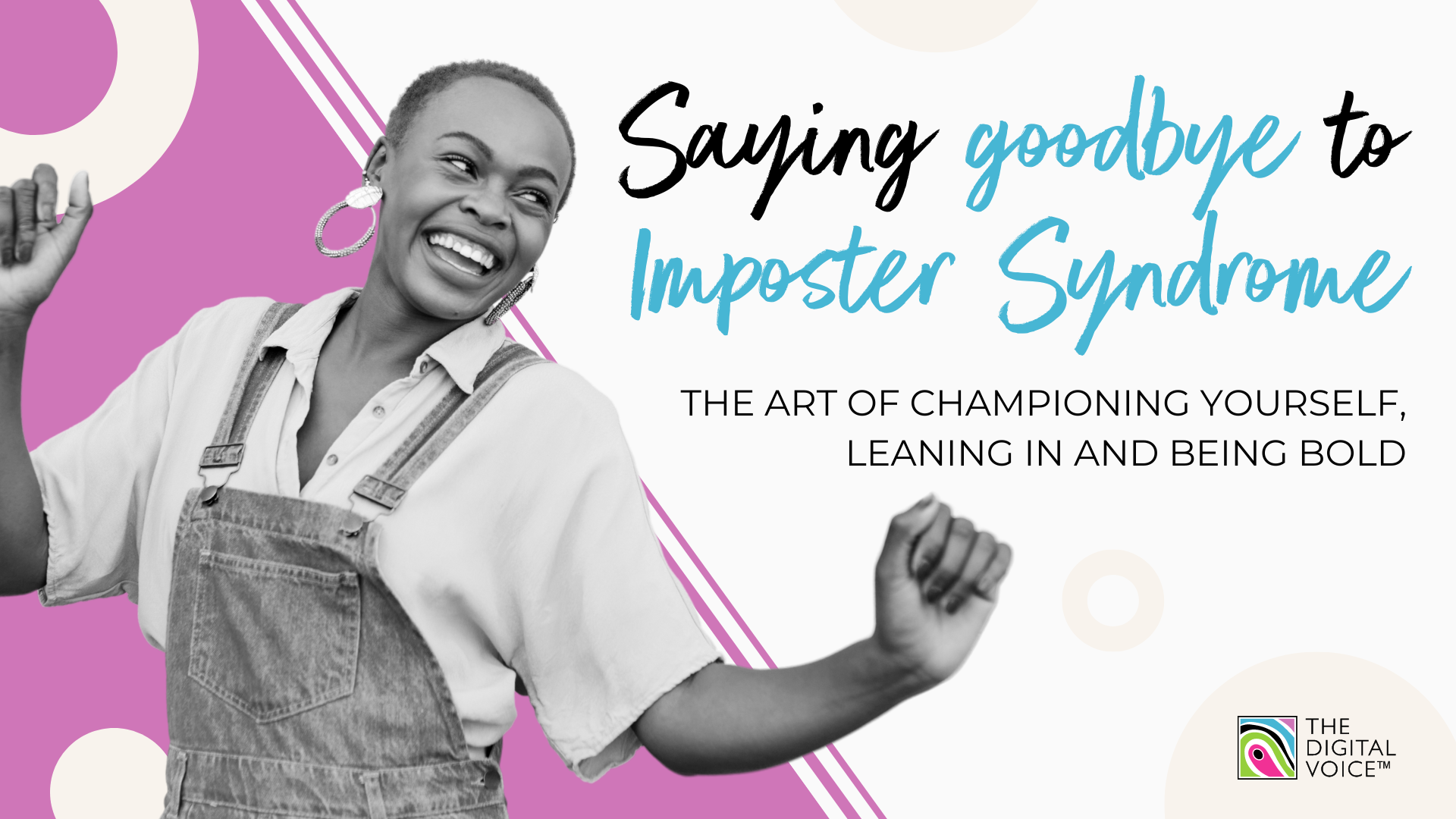Saying Goodbye to Imposter Syndrome
The art of championing yourself, leaning in and being bold.

We’ve all been there. You’ve got that nagging voice creeping up and telling you that you’re not good enough. It knocks your confidence and can be counter-productive, especially when you should be appreciating your accomplishments rather than doubting them. Maybe you think you’re too young, not experienced enough, it’s not an area of your expertise, the list can go on. But you made it to where you are for a reason so, why do so many of us suffer with this constant feeling?
That self-doubt feeling that we all get from time to time is what many people describe as ‘imposter syndrome’. In our latest episode of ‘Off Record, On Point’, our guest Lauren Palmer explained that imposter syndrome is a term coined by two psychologists back in 1978 and is all based on a study of high-achieving women. It ultimately describes the feeling of doubting your abilities and perceiving yourself as a fraud.
Although the idea of ‘imposter syndrome’ is still very relatable to many, it’s time we rethink how it makes us view ourselves. By using these words, we’re already putting ourselves into a bracket that has negative connotations. If you’re having these feelings you do not have a “syndrome” and you do not need to be cured, it’s all about reframing your thinking and learning to use these feelings of anxiety to empower you, rather than to knock you down.
There’s a reason you made it to where you are, now it’s time to articulate that. One session that really stood out to me at this year’s MAD//Fest was Stefanie Sword-Williams ‘F*ck Being Humble’ session and a lot of what she discussed could really be used to help tackle these unwanted feelings of self-doubt. There’s a real beauty behind pitching your own self-worth to others and pushing away the fear of coming across as arrogant. The more time you invest in learning to champion yourself, the easier it will get to cope with those feelings of self-doubt when they next creep up. Here’s a few standout takeaways to consider putting into practice:
- Find the tools that help you recognise your self-worth.
When you’re having feelings of self-doubt, reflect back on the hard work you’ve put in to get you to where you are today. Think about how you can best do this. Maybe it’s by making a list of work that you’re proud of, reflecting on how far you’ve come since starting out your career or even by asking the people around you their favourite qualities about you that help contribute to the workplace. For example, at The Digital Voice, we have a Slack channel dedicated to championing others and our own standout efforts and hardwork daily.
- Channel your most confident self.
In times where you’re not feeling your best but have to show face, think about when you feel most confident. Maybe it’s when you’re around your friends, with your family or when you’re doing something you love. Take yourself back to that mindset and think about what it is that makes you feel so comfortable in those situations. The more you remind yourself of what makes you feel confident, the more you’ll be able to practise feeling it in more uncomfortable or nerve wracking situations.
- Place yourself in environments where you are respected and appreciated for your efforts.
There’s a lot of internal work you can do to help tackle feelings of self-doubt but the environment you surround yourself with plays a huge role. Take yourself out of toxic spaces and hold people accountable for behaviours that may be causing some of these feelings. In the words of Stefanie Sword-Williams, “discomfort is temporary but the payoff can be extraordinary”.
- Show people why you belong in the room.
It's natural for everyone at some point in their life to feel like they don’t belong or they're not good enough but it’s these times where our self-worth and self-promotion is the most important. If you’re feeling like you don’t belong you have to rewire your thinking to show people why you do. Think of it like an advertisement for yourself. Tell people your achievements, your passions and your skills. We need to stop holding ourselves back for the fear of how others may react. The only thing you can control is how you behave and feel in situations so practise self-promotion.
Feeling self-doubt in the workplace is natural and isn’t a linear journey when trying to tackle it. The above steps are just a few of the ways in which you can start saying goodbye to self-doubt and take the leap towards feeling confident and owning your self-worth. There's no doubt that it’s definitely easier said than done but small proactive steps can make a huge difference to your mindset. For more advice, check out our latest episode of
Off Record, On Point with Lauren Palmer

Amber O’Neill is a Senior Social and Content Writer at The Digital Voice PR Agency and has a strong foundation in PR and media through her Bachelor of Arts degree in Media and Communications with Political Studies from the University of Sussex. She also holds a Masters degree in Journalism and Documentary Practice and has been working in the media and communications industry since graduation.



